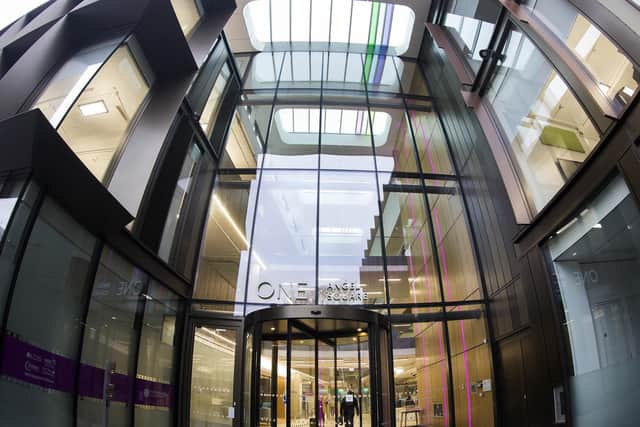Northamptonshire residents urged to be aware of scams that ‘may take advantage’ of coronavirus
and live on Freeview channel 276
The Trading Standards department at Northamptonshire County Council has issued the advice, which has been backed by cabinet member Councillor Jason Smithers.
It comes as the National Trading Standards (NTS) Scams Team has identified a list of possible scams to be wary of.
Advertisement
Hide AdAdvertisement
Hide AdIn Northamptonshire, trading standards are aware of an email scam asking parents to supply bank details if their child is usually entitled to free school meals. This is not an official email and should be ignored and deleted.


Councillor Jason Smithers, county council cabinet member for place and environment said: “We’ve seen an incredible response from local communities with things such as Facebook community groups and WhatsApp groups springing up to help vulnerable people.
“This has been wonderful to see, but sadly not everyone out there is trustworthy and some people will take advantage of the difficult situation we are all facing.
“The scams identified by the National Trading Standards scams team are just some of the scams to be aware of, but remember that criminals come in all shapes and sizes and can contact you at the door, by phone, post or online.”
Advertisement
Hide AdAdvertisement
Hide AdAmong the potential scams identified nationally, people should be aware of offers of miracle cures or vaccines for coronavirus. There is no specific cure for COVID-19, with treatment aiming to relieve the symptoms until the person recovers. There are also lots of fake products available to buy online that say they can protect people or cure coronavirus, but these will not help and are designed to take people’s money.
Some people are impersonating healthcare workers, claiming to be offering ‘home-testing’ for coronavirus, but this is a scam and these kits are not currently available to buy.
Emails saying that people can get a refund on taxes, utilities or similar are usually bogus and are just after personal and bank details. Banks or the police will never ask for bank details over the phone.
There are new mobile phone applications that claim to give updates on the virus but instead, they lock the phone and demand a ransom, while some people are offering to do shopping or collecting medication and asking for money upfront and then disappearing.
Advertisement
Hide AdAdvertisement
Hide AdAdvice offered to avoid being scammed includes following your instinct, asking for ID if someone claims to represent a charity, never give your bank card or PIN to a stranger and only purchase goods from legitimate retailers.
Anyone who thinks that they have been scammed should report it to Action Fraud on 0300 123 2040 or if they need advice, call the Citizens Advice Consumer Helpline on 0808 223 1133. If people are in immediate danger, please contact the police on 999. People can also contact their bank if they think they have been scammed.